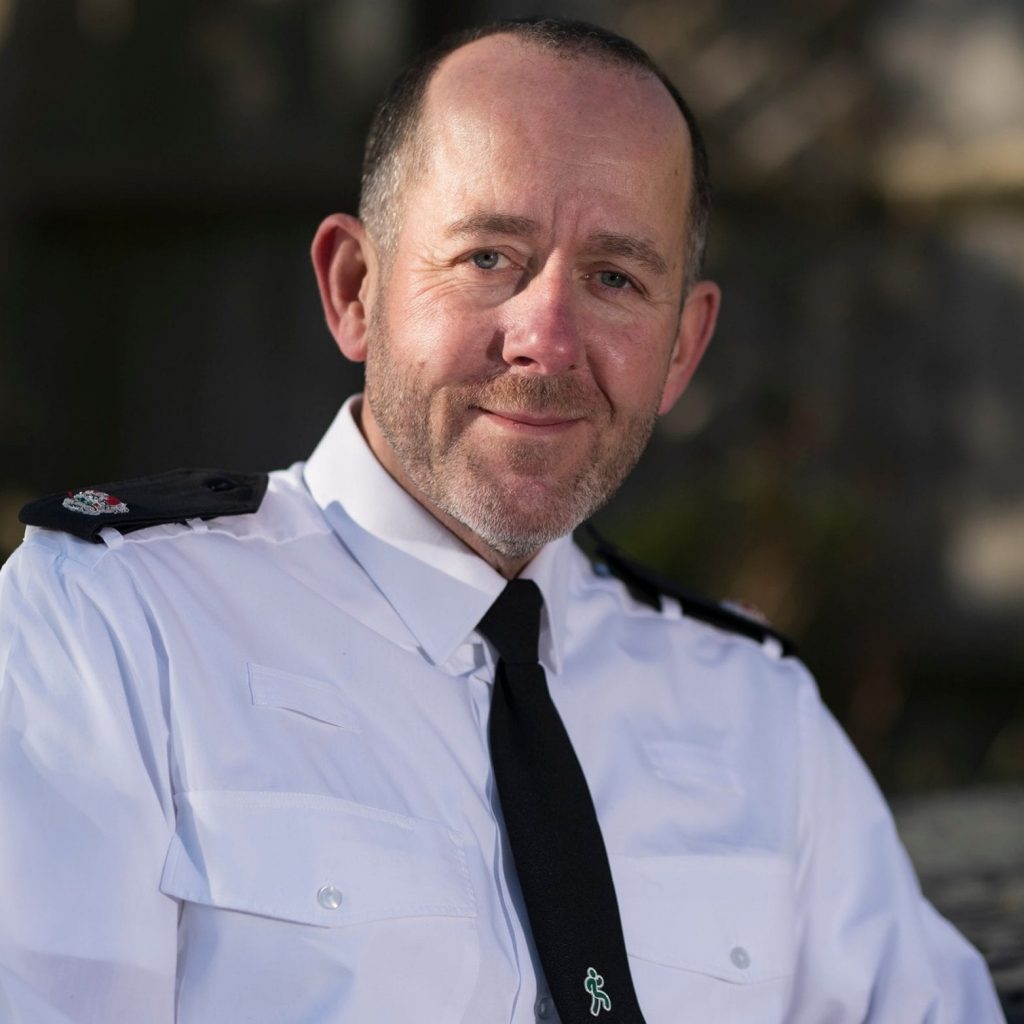by Simon Nelson
President | Disabled Police Association
Welcome to my latest one-page blog which I always endeavour to publish every two months, in the hope they will stimulate thoughts and discussion without taking up too much of your busy time. Please feel free to contribute, challenge and share any comments and ideas about the points raised.

There have recently been many discussions about negative police team cultures and it’s not surprising really bearing in mind the number of high profile cases involving the sharing of disgusting images and language via chat apps and other means, as well as the tragic murder of Sarah Everard by a police officer. I know of so many police officers who saw this as the ultimate betrayal of everything we stand for and why we serve. Over the past 28 years I have been proud to work alongside thousands of officers who have shown considerable courage and integrity, frequently in circumstances others would struggle to imagine – I once commented in a local council meeting, “They are employed to do, see, hear, feel and smell the things you would rather not”. However, accepting the exceptional policing challenges faced, we can no longer dismiss some of the examples of unacceptable behaviour we have heard as simply workplace ‘banter’ from ‘a few bad apples’. It is a time for us to hold up the mirror to ourselves, reflect honestly and have some uncomfortable conversations in order to build trust and legitimacy going forwards.
I have done that myself and taken the time to speak with female colleagues about their lived experience of ‘everyday sexism’ and I’ve learned so much about what society wrongly accepts as normal. I also reflected on why I have personally witnessed so few examples of discriminatory behaviour within the teams I have been part of or led. Although I would never pretend to be the perfect leader and always determined to develop further, I now understood why: active leadership and recognising workplace culture is not an accidental phenomenon, leaders shape it. Serious forms of misconduct did not arise because signal behaviours were addressed, an example from many years ago being a photo of topless woman being removed from the inside of an officer’s open locker door and a private discussion with him about that; or hearing jokes at another’s expense and having a conversation with them to check how they felt about it. My teams knew how important it was to me that everyone felt part of the team and able to be their true selves – a clear line was drawn.
“I’ve learned that people will forget what you said, people will forget what you did, but people will never forget how you made them feel”
Maya Angelou
That said, we gain little from reassuring ourselves that, ‘It may have happened there but it’s different here…’ – we need to acknowledge that pockets of toxicity exist everywhere. Teams must be encouraged to discuss what it is like to be different, informed by members of diverse staff networks and improve their understanding of how harmful derogatory behaviours and language can be. Much has been highlighted recently in relation to racism and misogyny but there has been little activity in response to the 2019 National Police Survey that revealed that over the previous 12 months, 41% of respondents had experienced ‘incivility’ based upon their disability. Therefore, the Disabled Police Association whilst supporting the views of other groups, believes the issue that needs to be addressed is institutional discrimination. It is a great shame that it often takes the tragic death of someone from a protected group before political discomfort prompts the necessary will and resources to make substantial improvements. We need more anti-disablists and we need them now.
Team members have two fundamental needs: to be authentic and to belong. We need to recognise the pattern of behaviours within teams that degrade our cultures – the comment made about another person’s difference – it being shrugged off because the recipient still wants to belong – others now seeing that as acceptable and the originator seeing the laughter as validation and encouragement. As leaders we are responsible for the check-and-balance and what we ignore is what we accept. I know of some disabled colleagues across the UK whose confidence has been quietly crushed over time by such comments.
The police, as with many other organisations is as demanding as it has ever been and we need the decompression provided by good humour within close teams, but it must be supportive. One of the many things that make me most proud to be a police officer is the willingness of colleagues to be there for each other, so let’s have honest conversations about how we can do that better and have more reasons to be proud of who we are. ∎
